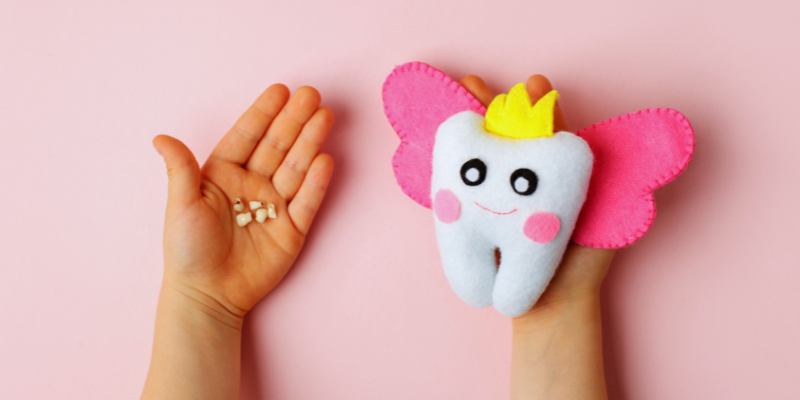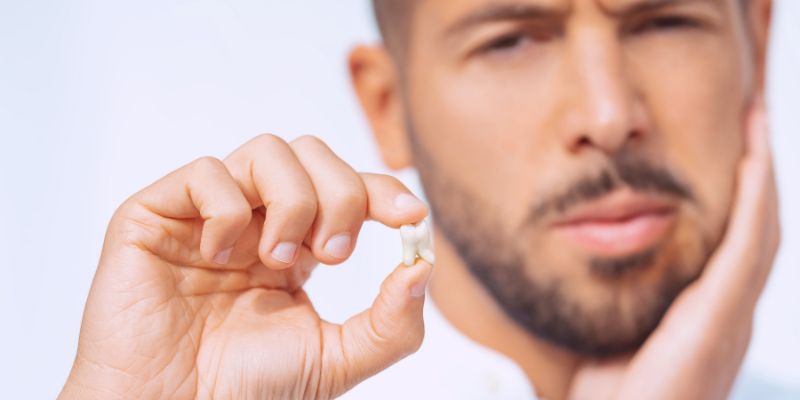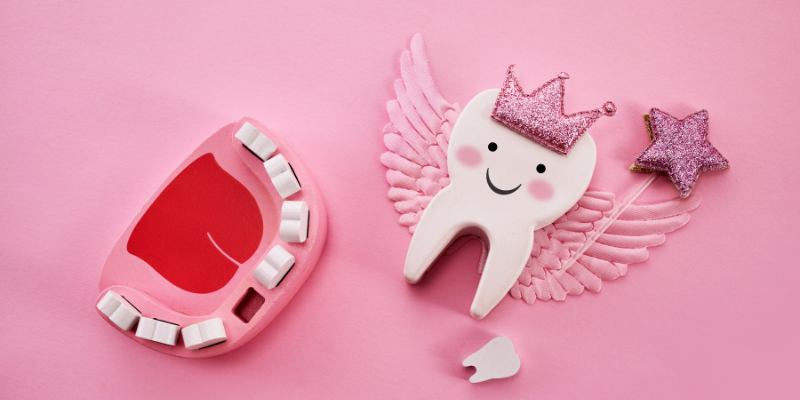The Tooth Loss Truth: Why the Tooth Fairy Isn’t Coming Anymore
A common problem brought on by aging, inadequate dental care, or mishaps is tooth loss. It influences general health, speaking, chewing, attractiveness, etc. Though younger people sometimes suffer from this, many believe only older adults lose teeth. Losing teeth meant a trip from the tooth fairy while a child. In maturity, though, it is a major worry. Prevention is, however, very important even if dental procedures have advanced.
Maintaining dental health depends on an awareness of the reasons and remedies. This guide investigates the causes of tooth loss as well as preventative measures. We will review current treatments, including bridges, dentures, and implants. Taking the correct actions will help preserve your smile. Let's discover the truth since the tooth fairy is no longer visiting.

Common Causes of Tooth Loss
Medical problems and avoidable reasons induce tooth loss; thus, knowledge improves the treatment.
- Poor Oral Hygiene: Ignoring dental health results in major problems. Ignorance of brushing or flossing lets plaque develop. Tartar results from this plaque and promotes gum disease and cavities. These issues weaken teeth over time, which causes tooth loss.
- Gum Disease (Periodontitis): Gum disease is the main reason teeth are lost. It begins with gum swelling and bleeding brought on by Gingivitis. If untreated, it becomes periodontitis, which compromises the bones supporting teeth. Teeth loosen and fall out in weak bones and receding gums.
- Tooth Decay and Cavities: Acid attacking the enamel by bacteria causes cavities. The treated degradation gets to the tooth's deeper layers. It can start an infection and result in tooth loss or extraction. Regular dental appointments help avoid severe cavity development.
- Accidents and Injuries: A tooth could be knocked out with a sudden fall or impact. Furthermore, causes of tooth loss include vehicle accidents and sports injuries. Using mouthguards shields teeth from harm during physical activity.

Effects of Tooth Loss on Health
Losing a tooth influences more than only appearance. Its many health effects affect daily living.
- Difficulty in Chewing: Teeth break down meals for absorption. Missing teeth make eating challenging and cause intestinal problems. Some people avoid hard foods, which compromises their general health and nutrition. Good dental treatment helps to avoid these problems properly.
- Speech Problems: Teeth support a clear voice. Losing front teeth could make it harder to pronounce words accurately, resulting in decreased confidence and communication. Like dental prostheses, dentures, or implants, speech therapy or dental prostheses help efficiently recover appropriate speech ability.
- Bone Loss in the Jaw: Dental stimulation maintains the jawbone's robustness. Losing teeth gradually decreases the underlying bone, changing the face and resulting in the decay of surrounding teeth. Dental implants support facial form and bone density retention.
- Shifting of Remaining Teeth: A lost tooth leaves a space that lets surrounding teeth move. This alignment can lead to extra dental problems and bite difficulties. Bridges or implants help to preserve correct alignment.
- Jaw and Facial Structure Changes: Losing teeth can cause the face to droop, which ages a person. Without teeth to support them, the lips and cheeks lose shape, which causes early wrinkles and a sunken look.
Modern Solutions for Tooth Loss
Losing a tooth is no longer a lifetime issue. Dental developments provide good alternatives for lost teeth replacement.
- Dental Implants: Replacing teeth with dental implants is long-term. A metal post fuses with the jawbone to support a crown. They stop bone loss, look natural, and restore function, guaranteeing higher dental health and stability.
- Dentures: Implants are full- or partial-type detached teeth substitutes. Modern designs provide a natural look, enhancing ease, chomping on, and speech. They help recover oral operations to expand overall dental health and trust effectively.
- Dental Bridges: Bridges restore lost teeth, anchoring to surrounding teeth. They ensure oral stability by restoring function, stopping shifting, and, with correct maintenance, remaining strong for years.
- Gum Treatments and Bone Grafts: Gum therapies restore gum health; bone grafts repair the jawbone. These treatments assist dental implants, guaranteeing long-term tooth replacement, enhancing oral health, and preserving jaw strength for greater dental function and stability.
- Same-Day Tooth Replacement: Dentistry has advanced to enable instant tooth replacement. With operations like immediate-load implants, patients can have a functional, natural-looking tooth on the same day, lowering waiting times and improving confidence.
Preventing Tooth Loss
Stopping tooth loss comes more naturally and more easily than curing it. Easy routines can help you to have lifetime dental protection.
- Brush and Floss Daily: Brush twice daily and floss to clear plaque. Use fluoride toothpaste for more robust enamel. Excellent oral hygiene guarantees long-term dental health and cleanliness by preventing cavities and gum disease and maintaining fresh breath.
- Visit the Dentist Regularly: Frequent dental visits find early problems. Expert cleanings eliminate tartar accumulation. Dentists examine for gum disease, cavities, and other problems, preserving good teeth, gums, and general oral hygiene.
- Eat a Healthy Diet: A balanced diet promotes strong teeth. Avoid sugary meals that foster deterioration. Eat calcium-rich foods, including dairy, leafy greens, and nuts, to preserve strong teeth, bones, and oral health.
- Protect Your Teeth from Injury: Wear a mouthguard during sports and avoid biting hard things. Preventing injuries guarantees long-term oral health and strong teeth by lowering the chance of fractures, tooth loss, and damage.
- Quit Smoking: Smoking can lead to gum disease and tooth loss, and too much ethanol fuels decay and dry mouth. Good living encourages strong teeth, gums, and general long-term oral health.
Conclusion:
Tooth loss is not only an occurrence from childhood connected to the tooth fairy. Many grownups deal with this serious problem. Injuries, gum disease, and bad oral hygiene help to explain tooth loss. Losing a tooth affects speaking, chewing, and bone strength. Modern dentistry thankfully provides options, including bridges, dentures, and implants. However, the greatest strategy is preventative care—regular dental visits, flossing, and brushing help to guard your teeth. Knowing the reasons and remedies for tooth loss can enable you to keep a nice smile. Look after your teeth now; you won't have to worry about missing them tomorrow.











